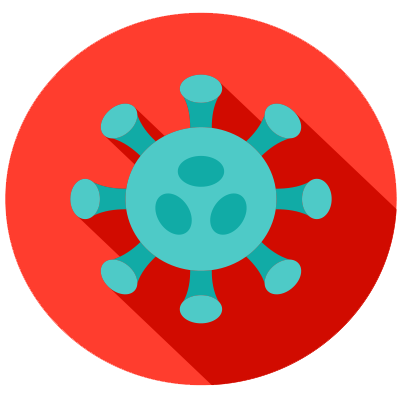 Impact of COVID-19 in Children and Teens
Impact of COVID-19 in Children and Teens
Just like adults, children and teens can:
- Get very sick from COVID-19
- Have both short- and long-term health problems
- Spread COVID-19 to others, including at home and school
There is no way to tell in advance how children or teens will be affected by COVID-19. However, those with underlying medical conditions or who have a weakened immune system are more likely to get severely ill from COVID-19. Some examples of conditions that can make children more likely to get severe COVID-19 include: asthma or chronic lung disease, diabetes, obesity, and sickle cell disease.
Those without underlying medical conditions can also experience severe illness. In fact, almost half of children younger than 18 years old hospitalized with COVID-19 have no underlying conditions.
Multisystem Inflammatory Syndrome in Children (MIS-C)
Children and teens who get COVID-19 can develop serious complications like multisystem inflammatory syndrome in children (MIS-C). MIS-C is a condition where different body parts become inflamed, including the heart, lungs, kidneys, brain, skin, eyes, or gastrointestinal organs.
Since the beginning of the pandemic, thousands of cases of MIS-C have been reported. Children ages 5 through 11 years are most frequently affected by MIS-C, with almost half of all reported cases occurring in children in this age group. In addition, Hispanic or Latino and non-Hispanic Black children are disproportionately affected by MIS-C.
Learn more about MIS-C.
Ongoing Health Problems after COVID-19
After getting COVID-19, children and teens can also experience a wide range of new, returning, or ongoing health problems. These include physical and mental health complications that may occur four or more weeks after initial infection. These complications can appear after mild or severe COVID-19, or after MIS-C.
Learn more about post-COVID conditions.